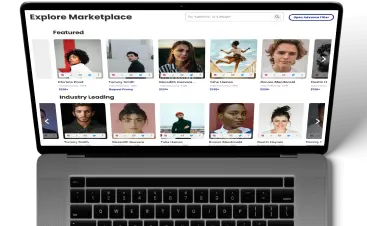Moving into the new year, brands and influencers are planning out their success and growth modules for 2021. As brands are collecting data on as many customers as possible, influencers are online feeding suggestions and information to these customers. But, something we rarely think about is the data behind the information we collect as companies. As some have been predicting – the time seems to be coming for the infamous ‘internet cookies’ that hold all this customer-information data. To many people’s surprise; this very much may be the year that the online cookie seems to crumble.
Google has come out and stated “sometime during this year, the Chrome browser will expire third-party cookie data after a 24 hour time block”. On a broad scale this means that ‘cookies’ will only exist within a browser for a single day. At first glance this may seem very insignificant in the eyes of many brands and online retailers who don’t utilize cookie data in their marketing strategies. On the other hand, this may completely revolutionize the way marketers view the retargeting strategy of digital ads.
This isn’t the first time we’ve seen cookies put in a time box. In 2017 through the implementation of the Internet Tracking Prevention, the Safari web browsing server put a 24 hour window on the cookies collected. But, data shows that under 20% of all web users look towards the Apple owned Safari for web searching, browsing, and work. Over 60% of users said they use Google Chrome for their daily browsing needs. Yes, Safari’s data collection barrier did hinder the likings of many brands.
To no surprise the people who felt most impacted by the cookie rule put in place by the ITP just transitioned their efforts over to the Chrome browser. With Google’s new initiative in place, which will account for 60% of web browser users – the cookie rule may change the way we give out our data… and see it given right back to us in the form of digital advertisements.
Real Quick—What Are Cookies?
For those who don’t know – a cookie is an individualized piece of information that is custom to you as a browser of the web. When you go to a website, you most times will see that the site uses cookies and, well, we all play victim when quickly pressing the “I Agree” button.
This “cookie” is just an individualized piece of data that goes from the website itself onto your hard drive and then follows you around to different sites you go to afterwards. In simple terms, when you shop for a new dress on a website that has your cookies and then go on social media later that day… guess what you find? That dress follows you there, just screaming “buy me!” again and again. That’s because the dress is full of cookies (data ones, not chocolate chip) and it’s following you from site to site.
When cookies are integrated within Third Party Providers (such as Facebook, Instagram, Amazon etc.) they initially start on a single website and collect your data which is sold in real time to the media giants. That way, when you go from site to site and immediately see a banner or column ad for that piece of clothing you didn’t buy earlier but wanted to buy – it’s right there waiting for you to click it and complete the purchase.
What Does It Mean When They Only Have 24 Hours?
Basically, when Chrome finally does put a time stamp on the life of each cookie, the companies who are collecting this data on your from your experience on their site cannot sell it to other websites or track you after that 24 hour mark is up.
If your brand focuses on retargeting (using cookies to target customers on other sites once they leave yours) then you are going to completely refocus your marketing strategy after this rule goes into place.
For companies who are primarily using retargeting outside of a walled-garden environment will loose the entirety of their cookie pool every day. With that in mind, each day the new segment of user data will need to be scraped and analyzed without being able to build on the previous stack of data collected in ‘yesterday’s time’.
What Do You Need to Do About This?
From a brand and retailer perspective, this is going to be something you and your team must think hard about. Once in place sometime this year, the entire competitive market will see a shift as the media buying space online transitions to First-Party cookie services and focusing more on touch points from customers.
Rethink all customer touch points
Think about your product / service and the website where it connects the audience with the brand. Step into the shoes of the consumer and go the brand’s website and click through as if you were a potential customer. See what points of contact are best and identify which are harder to navigate. See where you as a customer spend the most time.
Get email addresses at these touch points
Now that you aren’t going to be able to follow the user around online all week long until they purchase that cookie filled dress, we are going to need to target them via email. Make sure that you get as many emails as possible. You can make this fun by sending users coupons and special offers upon receiving their email. Now you can take the data collected by your site when a user visits it and use that to target the user via email in a more direct way.
Begin targeting right away with the cookies you do have
Yes, the cookies are going to expire. But, you still have a time window to use them and the data behind them to retarget your ads to these customers as they move around the web. Utilizing your CRM base and media buying – you can follow these users in real time and push the products they were looking at on different sites.
Though cookie expiration may cause stress for marketers and create a digital shift in media buying and data understanding, it is going to be a step in the right direction for the internet. Not everyone (myself included) likes being followed by every click we make. We’ve all had that feeling of being ‘watched’ as the dress or pair of shoes follow us from site to site. Sometimes we just want to browse the internet freely and not be followed by marketing tactics and instant media buyouts. It’s nice to be set free from the shackles of online marketing. You know – maybe it’ll be nice to see the cookie crumble.





